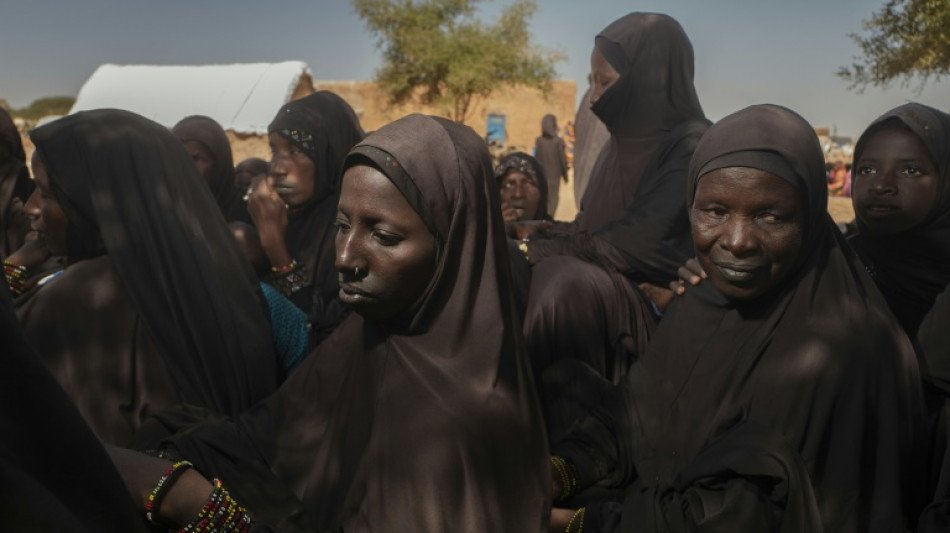
-
 Atalanta sack coach Juric after poor start to season
Atalanta sack coach Juric after poor start to season
-
Trump threatens $1 billion action as BBC apologises for speech edit

-
 Gattuso wants 'maximum commitment' as Italy's World Cup bid on the line
Gattuso wants 'maximum commitment' as Italy's World Cup bid on the line
-
Indian capital car blast kills at least eight
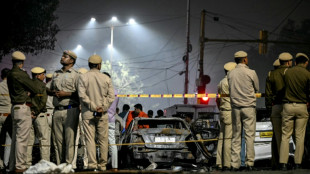
-
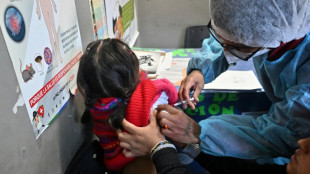 Deadly measles surge sees Canada lose eradicated status
Deadly measles surge sees Canada lose eradicated status
-
Brazil's Lula urges 'defeat' of climate deniers as COP30 opens

-
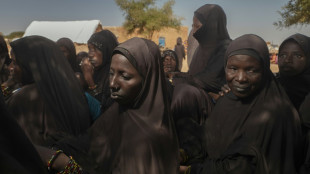 Strangled by jihadist blockade, Malians flee their desert town
Strangled by jihadist blockade, Malians flee their desert town
-
US Supreme Court declines to hear case challenging same-sex marriage

-
 'Fired-up' Fritz sees off Musetti in ATP Finals
'Fired-up' Fritz sees off Musetti in ATP Finals
-
Injured Courtois set to miss Belgium World Cup qualifiers

-
 Bulatov, pillar of Russian contemporary art scene, dies at 92
Bulatov, pillar of Russian contemporary art scene, dies at 92
-
Fritz sees off Musetti in ATP Finals

-
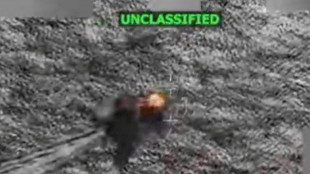 US strikes on alleged drug boats kill six more people
US strikes on alleged drug boats kill six more people
-
Sarkozy released from jail 'nightmare' pending appeal trial

-
 COP30 has a mascot: the fiery-haired guardian of Brazil's forest
COP30 has a mascot: the fiery-haired guardian of Brazil's forest
-
The Sudanese who told the world what happened in El-Fasher
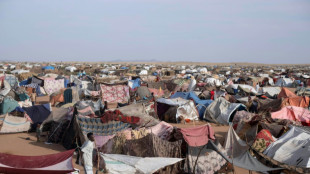
-
 Three things we learned from the Sao Paulo Grand Prix
Three things we learned from the Sao Paulo Grand Prix
-
ASC acquire majority share in Atletico Madrid

-
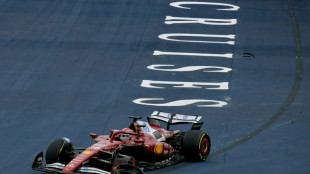 Ferrari boss tells Hamilton, Leclerc to drive, not talk
Ferrari boss tells Hamilton, Leclerc to drive, not talk
-
Bank of England seeks to 'build trust' in stablecoins

-
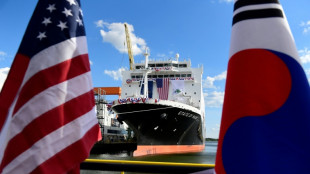 China suspends 'special port fees' on US vessels for one year
China suspends 'special port fees' on US vessels for one year
-
French court frees ex-president Sarkozy from jail pending appeal

-
 No link between paracetamol and autism, major review finds
No link between paracetamol and autism, major review finds
-
Typhoon Fung-wong floods Philippine towns, leaves 5 dead in its wake

-
 France's Sarkozy says prison a 'nightmare' as prosecutors seek his release
France's Sarkozy says prison a 'nightmare' as prosecutors seek his release
-
Guinness maker Diageo picks new CEO after US tariffs cloud

-
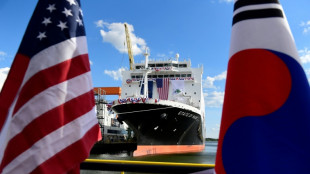 China suspends 'special port fees' on US vessels
China suspends 'special port fees' on US vessels
-
US senators take major step toward ending record shutdown

-
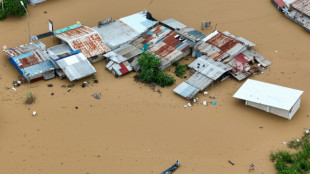 Typhoon Fung-wong leaves flooded Philippine towns in its wake
Typhoon Fung-wong leaves flooded Philippine towns in its wake
-
From Club Med to Beverly Hills: Assinie, the Ivorian Riviera
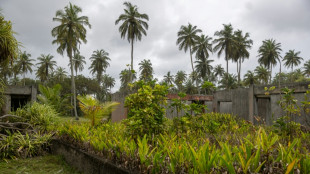
-
 The 'ordinary' Arnie? Glen Powell reboots 'The Running Man'
The 'ordinary' Arnie? Glen Powell reboots 'The Running Man'
-
Typhoon exposes centuries-old shipwreck off Vietnam port
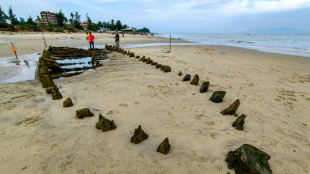
-
 French court to decide if ex-president Sarkozy can leave jail
French court to decide if ex-president Sarkozy can leave jail
-
China lifts sanctions on US units of South Korea ship giant Hanwha
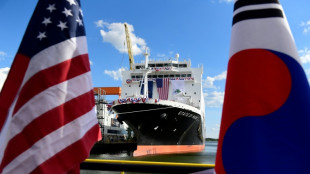
-
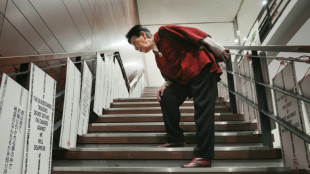 Japan death row inmate's sister still fighting, even after release
Japan death row inmate's sister still fighting, even after release
-
Taylor sparks Colts to Berlin win as Pats streak hits seven

-
 Dreyer, Pellegrino lift San Diego to 4-0 MLS Cup playoff win over Portland
Dreyer, Pellegrino lift San Diego to 4-0 MLS Cup playoff win over Portland
-
Indonesia names late dictator Suharto a national hero
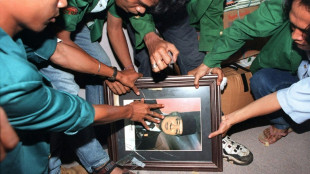
-
 Fourth New Zealand-West Indies T20 washed out
Fourth New Zealand-West Indies T20 washed out
-
Tanzania Maasai fear VW 'greenwashing' carbon credit scheme
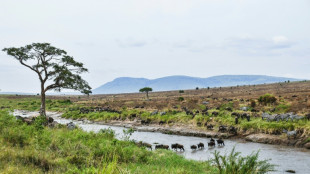
-
 Chinese businesswoman faces jail after huge UK crypto seizure
Chinese businesswoman faces jail after huge UK crypto seizure
-
Markets boosted by hopes for deal to end US shutdown

-
 Amazon poised to host toughest climate talks in years
Amazon poised to host toughest climate talks in years
-
Ex-jihadist Syrian president due at White House for landmark talks

-
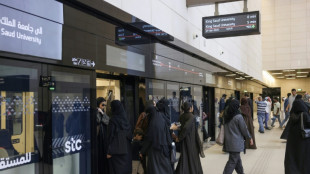 Saudi belly dancers break taboos behind closed doors
Saudi belly dancers break taboos behind closed doors
-
The AI revolution has a power problem

-
 Big lips and botox: In Trump's world, fashion and makeup get political
Big lips and botox: In Trump's world, fashion and makeup get political
-
NBA champion Thunder rally to down Grizzlies

-
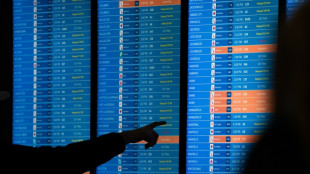 US senators reach deal that could end record shutdown
US senators reach deal that could end record shutdown
-
Weakening Typhoon Fung-wong exits Philippines after displacing 1.4 million
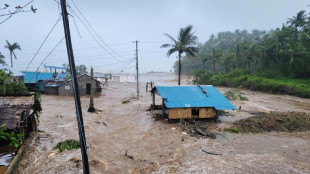

Strangled by jihadist blockade, Malians flee their desert town
Fatima gripped her newborn tightly against her chest as the Tuareg woman queued beneath the scorching Mauritanian afternoon sun to register herself and her child as refugees.
She was forced to flee the Malian town of Lere, near the border with Mauritania, after her community came under a total blockade by jihadists some two weeks ago.
Dressed in a brightly coloured tunic, she waited in the shade of an ochre wall in the Mauritanian border post of Fassala, alongside a few dozen others who had also fled the waxing insurgency in her west African country.
Since September, blockades such as that on Lere have been multiplying across Lere, carried out by jihadists from the JNIM, the Al-Qaeda-linked Group for the Support of Islam and Muslims.
The jihadists are simultaneously imposing a fuel blockade on Mali that has paralysed the landlocked Sahel country's economy.
The resulting unrest and violence have sent refugees fleeing westwards into Mauritania.
- 'Nothing left to eat' -
"We were told we had to leave the town. There was nothing left to eat. So, we left," Fatima said.
Between 2,000 and 3,000 people have fled to Mauritania from Lere and its surroundings in the last two weeks, according to the United Nations refugee agency.
"This is the largest influx of Malian refugees since late 2023," explained Norik Soubrier, a field expert for the European Union's humanitarian branch.
The people who had gathered near the registration area in Fassala appeared worn out by the sun and covered in dust.
Weary after several days of walking, many had travelled with their entire families. Some had brought their meagre resources: a donkey, a few goats, a horse.
Mali's suffocating fuel blockade and deteriorating security situation has had serious consequences in the capital Bamako and other regions, choking off smaller towns like Lere, which is located roughly 60 kilometres (40 miles) from the border.
The JNIM has been attacking fuel tankers entering Mali from neighbouring countries, in a bid to put pressure on the ruling military junta by stifling the economy.
The situation has prevented harvesting in several regions, limited access to electricity and forced the government, which has struggled to contain the insurgency since seizing power following back-to-back coups, to briefly close schools.
- 24 hours to leave -
Two residents of Lere who escaped to Mauritania told AFP the assailants had given locals "a 24-hour ultimatum" to leave the town, and those who could not or who refused were either "murdered or taken hostage".
"They suspect them of being in league with the Malian army, which is why there were these reprisals," added the other man, dressed in a green boubou robe and traditional turban.
Suspected jihadists have killed 14 civilians in the central Malian town in recent days, officials and locals told AFP.
One local official said armed fighters had launched an attack last week, "and kidnapped 12 people, who they then killed". The official, who blamed the JNIM, requested anonymity for security reasons.
In a separate incident, two herders who had been kidnapped four days earlier were "found dead a few kilometres from the town", the source said.
"These people were not killed randomly", a community leader told AFP. "They had lists. They were informed and were looking for specific names".
"When the Malian armed forces go out, they can move around without any problems. There is no fighting. But as soon as they return to the barracks, the JNIM replaces them, and the population is trapped," he explained.
"And even fleeing is now impossible. They (jihadists) gave people a limited time to leave. Now it's over."
Jihadists have set up roadblocks in the south and west of the landlocked country near the borders with Senegal and Mauritania, from which vital goods are imported every day.
The JNIM is the most influential jihadist group in Mali and represents the "most significant threat in the Sahel", according to the United Nations.
In recent months, the JNIM has expanded its influence over swathes of territory -- how much is not yet clear -- funding itself through tax collection and kidnap for ransom.
G.AbuHamad--SF-PST
